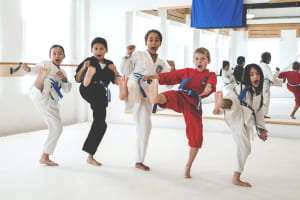
Different cultures have cultivated their unique styles, techniques, and philosophies, each offering valuable insights into the art of self-defense and personal development. In this blog post, we delve into the rich tapestry of martial arts, exploring how they showcase the beauty of diversity and foster cross-cultural understanding.
Martial arts encompass a vast array of disciplines originating from various corners of the world. From the striking arts of Muay Thai in Thailand to the graceful movements of Tai Chi in China, and from the powerful throws of Judo in Japan to the intricate footwork of Capoeira in Brazil, each style reflects the history, values, and traditions of its culture. One of the most striking aspects of martial arts is their ability to transcend geographical boundaries and bring people together. In modern martial arts schools and dojos, practitioners from diverse backgrounds come together to learn, train, and grow. This melting pot of cultures creates a dynamic environment where individuals can exchange knowledge, forge friendships, and gain a deeper appreciation for each other's heritage.
At the heart of martial arts lies a deep respect for tradition and lineage. Many martial arts schools place great emphasis on preserving their cultural heritage, ensuring that the teachings are passed down from generation to generation with integrity and reverence. For example, in traditional Japanese martial arts like Kendo and Karate, students often begin each training session with a bow as a sign of respect for their instructors, their fellow practitioners, and the art itself. Similarly, in disciplines like Brazilian Jiu-Jitsu and Taekwondo, practitioners pay homage to their roots through rituals, ceremonies, and the use of traditional attire. These cultural elements not only enrich the training experience but also serve as a reminder of the values and principles upon which the martial art was founded.

